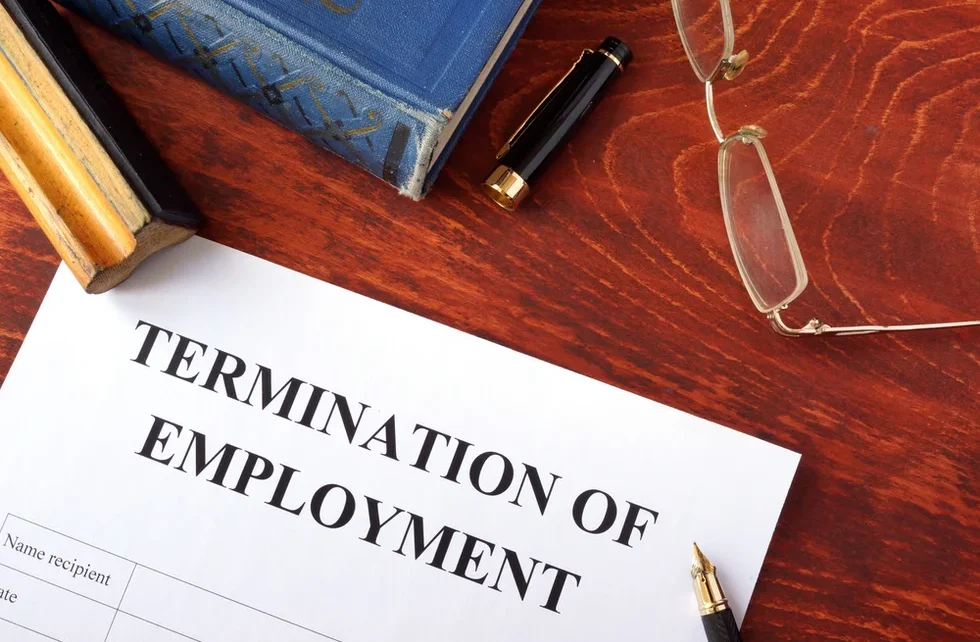Being fired is never easy — especially when you believe it was unfair or illegal. Whether your termination involved discrimination, retaliation, or a violation of contract, your next steps can significantly affect your ability to seek justice. Unfortunately, many employees unintentionally damage their own cases by making avoidable mistakes right after being let go.
If you’ve recently been terminated and suspect it may have been wrongful, here are the top five mistakes to avoid — and what you should do instead to protect your rights.
Mistake #1: Signing a Severance Agreement Without Legal Review
One of the first things many employers do after a termination is offer a severance package. While the money may seem like a helpful safety net, these agreements often come with strings attached — such as a waiver of your right to sue for wrongful termination.
In some cases, employers offer severance precisely because they know the firing could be legally questionable. If you sign the agreement, you may give up your right to pursue a claim — even if your firing violated the law.
What to Do Instead:
- Don’t sign anything on the spot.
- Ask for time to review the agreement.
- Consult an employment attorney to evaluate the terms before signing.
- You may be able to negotiate for better severance terms while preserving your legal rights.
Mistake #2: Failing to Document What Happened
The days and weeks following a termination can feel overwhelming. But during that time, important details can quickly fade or disappear — especially if you haven’t taken steps to preserve them.
Many employees don’t realize how critical it is to document everything surrounding their termination, including events that led up to it.
What to Do Instead:
- Write down a timeline of events, including conversations, meetings, complaints, and any performance reviews.
- Save relevant emails, texts, memos, or other communication — especially if they involve discriminatory comments, complaints to HR, or evidence of retaliation.
- If you filed any internal complaints or raised concerns before being terminated, make sure you have a record of it.
- Keep a copy of your termination notice or any written explanation you received.
This documentation could be key to proving that your termination was unlawful.
Mistake #3: Believing At-Will Employment Means You Have No Rights
Washington, D.C. is an at-will employment jurisdiction, which means employers can fire employees for almost any reason — or no reason at all. However, this leads many workers to incorrectly believe they have no legal recourse after being fired.
The truth is, there are many exceptions to at-will employment, and if your firing involved discrimination, retaliation, breach of contract, or a violation of public policy, it may have been illegal.
What to Do Instead:
- Learn about the exceptions to at-will employment under D.C. and federal law.
- If you were fired shortly after reporting harassment, requesting leave, disclosing a disability, or engaging in any protected activity, talk to an attorney.
- Don’t assume your employer acted legally just because they called it “at-will.”
Mistake #4: Waiting Too Long to Take Action
Many wrongful termination claims are subject to strict deadlines. If you wait too long to file a claim, even the strongest case can be dismissed.
In D.C., the timeline varies depending on the nature of your claim:
- Discrimination or retaliation claims (filed with the EEOC or D.C. Office of Human Rights) must typically be filed within 180 to 365 days of the termination.
- Contract-related claims may have a longer statute of limitations (often 3 years), but waiting can still harm your ability to gather evidence or secure witnesses.
What to Do Instead:
- Act quickly after your termination, even if you’re still processing what happened.
- Reach out to an attorney as soon as possible to assess your options.
- Filing a timely claim not only preserves your rights — it also sends a message that you take your case seriously.
Mistake #5: Going It Alone Without Legal Help
Employment law is complex — especially in wrongful termination cases, where evidence can be subtle and employers are often quick to defend themselves.
Trying to navigate the system on your own may leave you vulnerable to missed deadlines, procedural errors, or undervalued settlements. Even worse, you may be pressured into accepting the employer’s version of events without challenging it.
What to Do Instead:
- Speak to an experienced wrongful termination attorney in D.C. as soon as possible.
- A good lawyer can help you:
- Understand your rights
- Evaluate the strength of your claim
- Communicate with your employer or their attorneys
- File formal complaints or lawsuits
- Negotiate for compensation, reinstatement, or other remedies
Legal support can make a meaningful difference in the outcome of your case.
Final Thoughts
Wrongful termination can be devastating — but you’re not powerless. Avoiding common missteps can strengthen your position and help you hold your employer accountable under the law.
If you’ve been fired and believe your rights were violated, don’t let confusion, fear, or delay stop you from taking action. Document everything, seek legal advice early, and remember: unfair doesn’t always mean illegal — but illegal actions deserve to be challenged.
You may only get one chance to pursue justice. Make sure you do it right. We recommend wrongful termination attorney dc.




